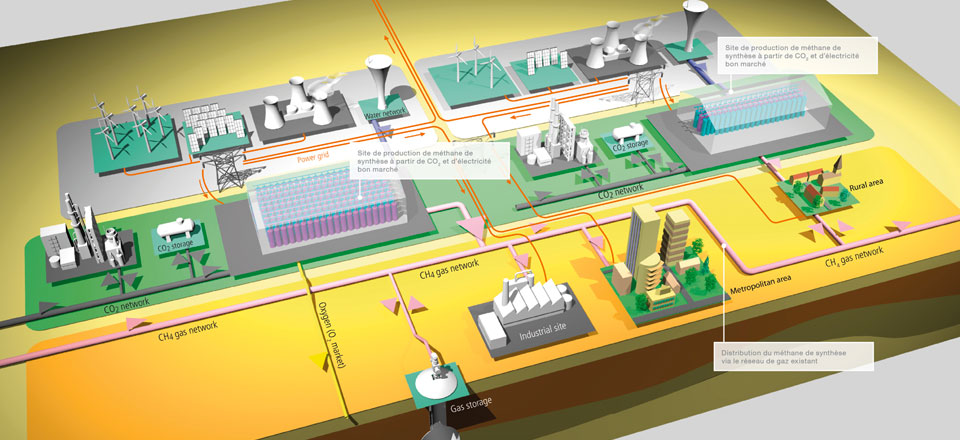
"Our researches address the conversion of renewable electric power into gas”, Frédérique Lebovits, engineer in charge of the GRHYD project at ENGIE Lab CRIGEN Research and Expertise Centre dedicated to gas and new energies (CRIGEN). Born in 1977, F. Lebovits is a graduate from Ecole Centrale Paris. She wrote her doctoral thesis on analytical chemistry at CEA. A green gas specialist, she has been a researcher at CRIGEN since 2009.
“Technological building blocks and gas infrastructure already exist”, she added. “The GRHYD project will prevent the loss of unused generated energy. Thanks to specific storage solutions, we achieve larger storage duration and greater capacity. ” Process optimisation, regulation or even industrial deployment, such are the challenges the CRIGEN team has decided to meet by 2020.
Power to gas marks the emergence of a new energy system. The flexible use of natural gas is at stake: heating, hot water, fuel, lighting... Supported by ADEME (the French Agency for the Environment and Energy Management), the GRHYD project is coordinated by GDF SUEZ in a cluster formed by 12 partners: the Urban Community of Dunkerque, GrDF, GNVert, Cofely Ineo, CEA, McPhy Energy, INERIS, CETIAT, AREVA SE, CETH2 and DK’Bus Marine.
In the city of Dunkerque, an experiment is currently being carried out where Hydrogen is being injected in the natural gas networks and Hythane (the new fuel obtained by mixing hydrogen with natural gas) is, quite successfully, being tested on NGV city buses. “Germany is the most advanced country in “Power to gas” technology and proved its efficiency by linking the power production of a wind farm located in the north with the electricity requirements of the south of the country”. Turning these pilot sites into pioneer sites.
Sign up for the ENGIE Innovation Newsletter